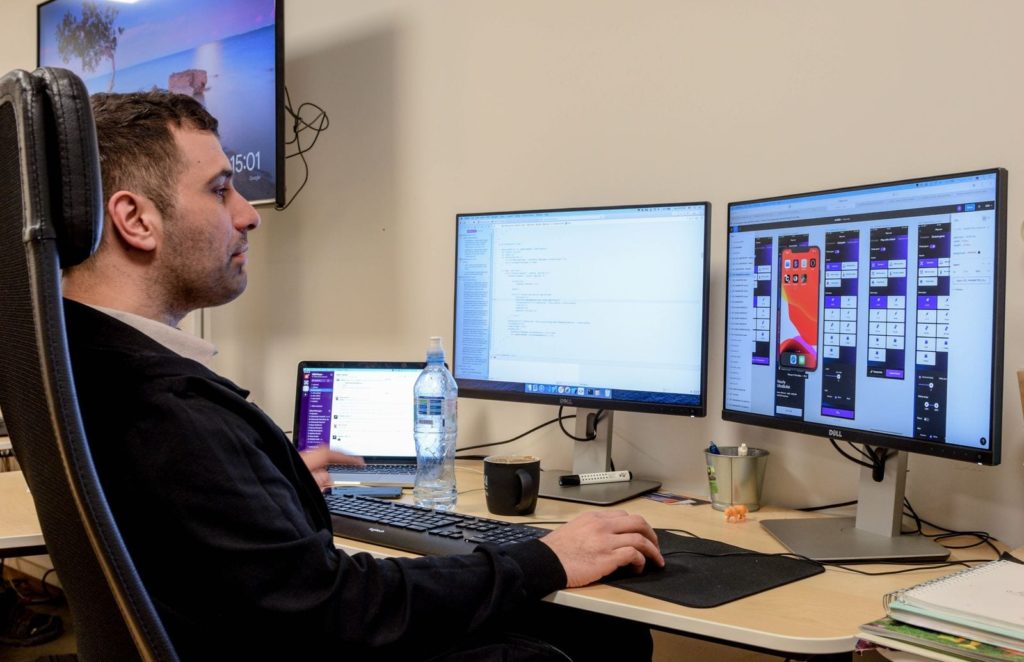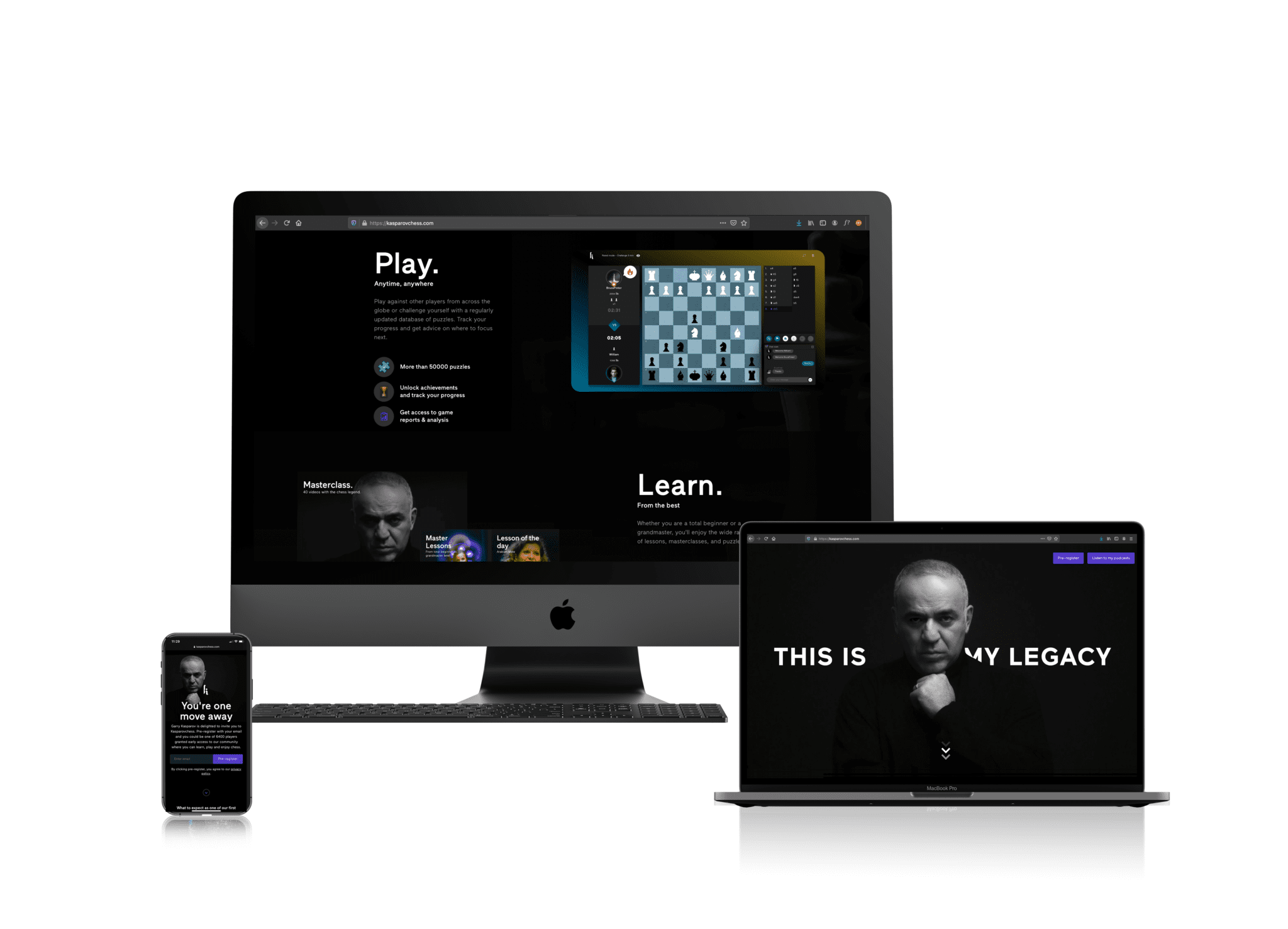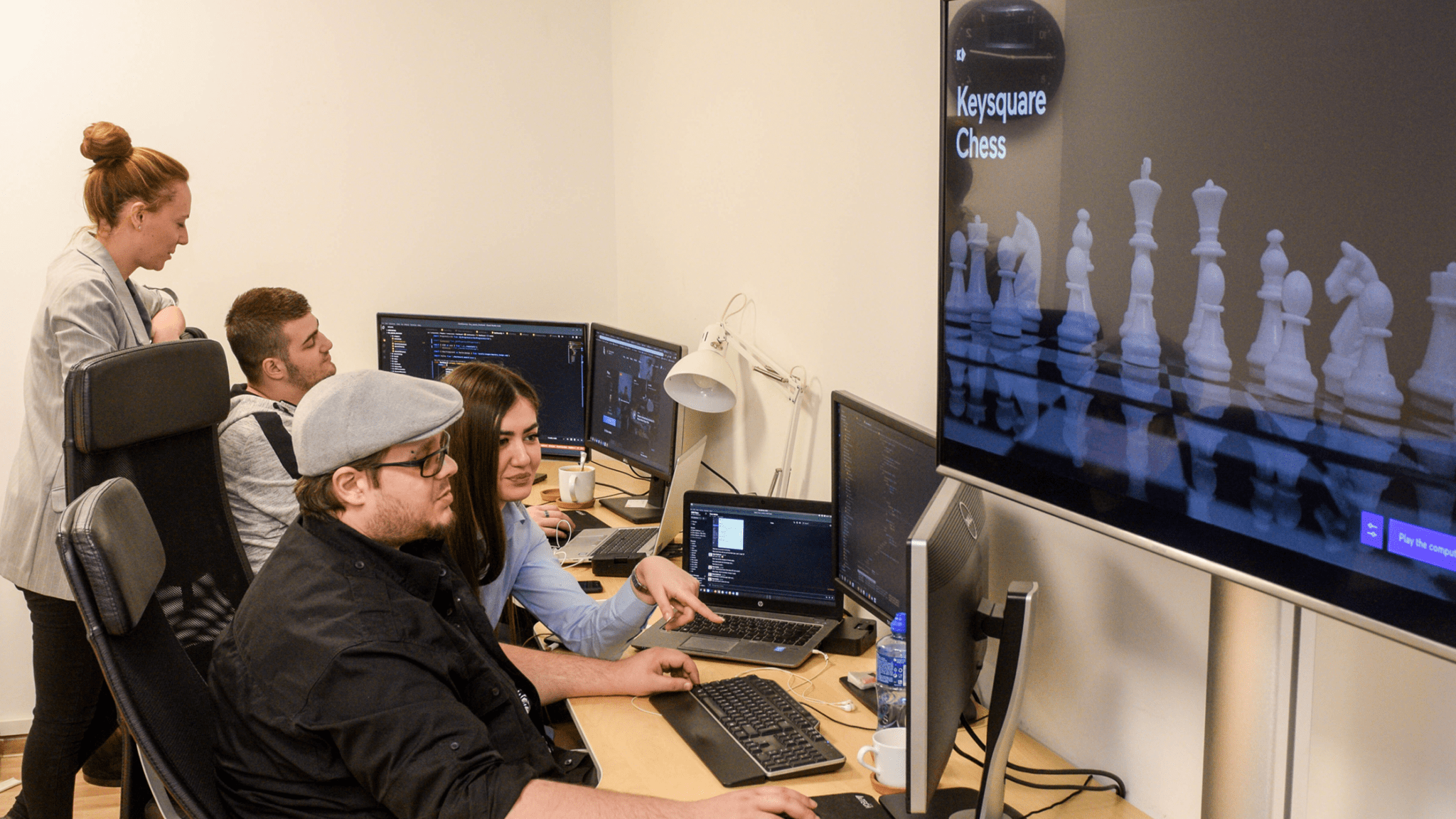It is often the case that local IT companies have a wide range of international projects in their portfolios. By developing custom software from scratch, they confirm that expertise and team commitment are the needed ingredients for a successful project. Even if the team isn’t that big.
Yet, what does working on such big projects looks like? How to cope with all the deadlines on a tight budget? What skillset should a team have to complete all the tasks? How to manage such a team in the middle of the pandemic?
Keep reading for some insider info.
Our small pack, a media conglomerate, and Garry Kasparov
We could’ve started this article with a catchy intro like: “A small team from a Serbian agency, OSM, launched the community-first chess platform, Kasparovchess, in collaboration with the famous Garry Kasparov.” But we didn’t.
Why? – Because our aim isn’t (just) to brag about our new project, but to get you familiar with the whole process behind it. Who can give better insights than the team members who worked on the project right from the beginning?
Vladimir (iOS programmer), Aleksandar (iOS programmer), and Sabrina (project manager) will give you all the answers to the above questions and share some useful tips.
Let’s just briefly get you familiar with the all Kasparovchess-project participants:
Garry Kasparov – chess legend, grandmaster, and former World Chess Champion. He participated recently in the creation of the currently popular Netflix series “The Queen’s Gambit”.
After a successful, decades-long chess career, Kasparov came up with the idea to create his own legacy, the Kasparovchess platform.
Vivendi – a French media conglomerate, owner of several companies such as Universal Music Group, Groupe Canal +, Havas, Dailymotion, etc.
OSM – a “pack” that successfully combines programming, design, and marketing to provide clients with the desired results and (un)expected success. Or, in simple words – a software design and development company.
What’s Kasparovchess exactly?
Kasparovchess is a platform where you can find useful tips and advice from legendary chess grandmasters. A place where you can watch and read many documentaries, podcasts, articles, and exclusive interviews. But there’s even more – on Kasparovchess you can improve your chess skills by solving puzzles and quizzes tailored to your knowledge and experience. Afterward, you can participate in a game of chess to check how much have you learned.

First things first: How does a small agency attract clients such as Garry Kasparov? It was really an honor to create a platform like this, but a challenge as well, right?
One of Kasparovchess’ investors is Vivendi, a well-known media conglomerate that we had a chance to collaborate with, on a different, small project. Since the collaboration went really smoothly, the Vivendi team decided to entrust us with the development of Kasparovchess. Yes, it surely was a big challenge. However, the commitment and proven expertise of our OSM members were the reasons behind this decision. I can only be proud of my team! – explains Vojin Stanojević, the founder of OSM.
Small team, big wins
Developing a platform like Kasparovchess requires people with a different skill set that can deliver a (very) a large number of tasks in a (very) short period of time. At a first glance, this seems like something that only a larger team can cope with, agree?
However, the OSM’s team dedicated to Kasparovchess consisted of a handful of developers – fifteen, to be more precise.
Was it a challenge to work on such a large project with limited resources, primarily – limited human resources?
Aleksandar: Actually, the fact that the team was small turned out to be a benefit. We managed to be flexible, to quickly adjust to any obstacle that was on our way. In addition, some of us have already collaborated in the past which made the whole process much faster.
For example, the iOS team faced a major challenge when implementing the SWIFT UI technology. The reason why we overcame it successfully was the fact that I had great communication with my colleague developers. It was easy to delegate relevant tasks, to anticipate when help is needed, and to brainstorm ideas together.
Sabrina: That was certainly was one of the biggest challenges for me as a project manager. It wasn’t an easy job to adjust the client’s needs (and sometimes unrealistic expectations) with the available resources. On top of all, my respogfrensibility was to make sure that none of the team members experiences a “burnout”.

What skills should an individual member have to fit well in a team like yours?
Aleksandar: It goes without saying that the primary thing every (new) team member should have is relevant knowledge and experience. However, sometimes it is equally important that he or she has the ability to adjust to the teams’ already established processes, procedures, but mentally as well. As mentioned, the fact that the Kasparovchess team has collaborated before was a huge advantage. Yet, the new members were smoothly integrated into the team. I must admit that Sabrina, our project manager, played a very important role in this process.
Vladimir: I would like to add that it was our team that proposed many platform improvements, that had many ideas, and wasn’t afraid to initiate them, no matter how “small” we were. This wouldn’t be possible if the team wasn’t aligned so well. For example, we knew that Denis (frontend programmer) was a big chess fan and a very good player as well. His knowledge was crucial to help to find solutions that would be intuitive to chess players. So, it isn’t just about being a good colleague, it is also making a step further.
Sabrina: I absolutely agree with my colleagues that expertise and knowledge were the primary requirements for joining our team. Yes, a previous working experience on similar projects or acquaintance with colleagues is certainly an advantage, but not a necessity.
If you asked me what’s the greatest value this team has, I would say – people. Without any doubts, All team members are very flexible, open to new ideas, but critics as well. These are the core values a team should have.
Do you think that projects like these are a better fit for a corporation?
Aleksandar: Well, smaller teams certainly have to cope with some challenges and limitations, tight budgets, and short deadlines. In a corporation, the project timeline is usually much longer, the teams are bigger so there isn’t that much pressure on individuals. On the other hand, that can lead to losing motivation and not getting out of your comfort zone.
No matter how much more stress there is in a smaller team, the mentioned limitations “push” people to be more creative, more excited about the project.
Vladimir: Besides, another advantage of a small team is that everyone has a huge responsibility and therefore is motivated to do his best. Every team member has an impact on the final results, and we all aim at good ones, right?
In addition, it is important to recognize the problems and challenges other team members are facing. For example, my goal was that the iOS application keeps pace with the dynamics of the Android version. I’ve collaborated closely with my colleague, an Android developer. We were finding bugs in each other’s work, working together to eliminate them. That was one of the reasons why we managed to complete the project on time!
Actually, I think that is a big team, it would be difficult for us to get organized this easy, and adapt to all the obstacles we encountered.
Sabrina: From my previous experience, when it comes to implementing new decisions, procedures, changes, etc., it is definitely better to work in a smaller team. Every obstacle, issue, or misunderstanding can be solved very quickly.
Without any doubt, the pandemic had an impact on all businesses and projects, worldwide. How did you manage to cope with the changes caused by the lockdown?
Vladimir: We, at OSM, find it really important to work together from the offices (although it is not mandatory). We try to make our working environment comfortable for everyone, to have a nice time during the working hours…but we like to hang out in our free time as well :). So for us, working remotely was a big change. However, it turned out that this challenge resulted in more productivity!
Aleksandar: I agree – there were no major changes when it comes to our team. We needed just a couple of days to adapt to the new situation, thanks to the fact that we were previously well organized and aligned.
Let’s jump back to the question from the beginning – Can a small team really cope with a global project? Yes, a small team can really be very successful in developing a large, global project. The key is that the individuals have the necessary knowledge, to be team players who will lift other members when needed, accept challenges, and stay open-minded to find the best solution for it.


